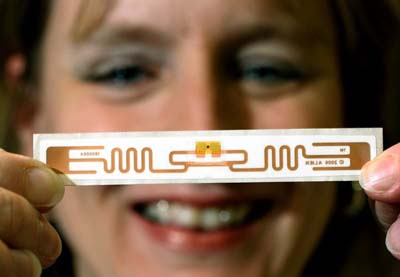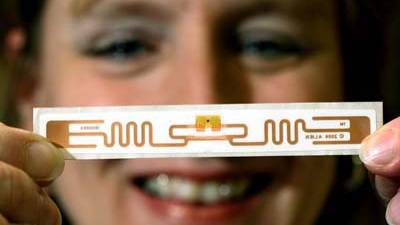How the "Internet of Things" May Change the World
Source: news.nationalgeographic.com
Some light promotion and surface criticism of "the internet of things."How The Internet of Things might work:
National Geographic brushes on how the Internet of things is coming, but only brushes on the idea that only bad guys (enemies of the state and mischief makers) will capitalize on ’flaws’ in the system. No word on how the interconnectedness, artificial intelligence, and constant monitoring of even bodily functions may be inherently controlling, and may eventually do your thinking for you.
What will happen when everything is connected to the internet?
---
How the "Internet of Things" May Change the World
By Brian Clark Howard| Nat Geo
This week, the Oxford English Dictionary added the phrase "Internet of things" to its hallowed pages, along with such neologisms as Bitcoin (a virtual currency), selfie (a self-portrait photo), twerk (a new dance move), and fauxhawk (a mohawk hairstyle achieved with gel and a comb).
But what exactly is the Internet of things, and how might the emerging technology change our lives?
The Internet of things is a concept that aims to extend the benefits of the regular Internet—constant connectivity, remote control ability, data sharing, and so on—to goods in the physical world. Foodstuffs, electronics, appliances, collectibles: All would be tied to local and global networks through embedded sensors that are "always on."
Sometimes called the "Internet of everything," the term Internet of things was coined in 1999 by Kevin Ashton, a British technology pioneer who helped develop the concept. Proponents say the benefits to consumers are substantial, although critics raise concerns about privacy and security.
In order for objects to interface with the existing Internet, they must have some means to connect. This is being done largely via radio-frequency identification (RFID) chips, although other means are also being used, including old-fashioned barcodes, QR (quick response) codes, and wireless connection systems like Bluetooth and Wi-Fi.
Ashton co-founded the Auto-ID Center at the Massachusetts Institute of Technology in 1999, which developed a global standard for RFID. That technology grew out of earlier iterations invented in the 1970s and early 1980s.
In the mid-1990s, Ashton worked for Procter & Gamble, where he saw that RFID chips could help the company keep track of its massive array of products. Today, RFID chips are used by many companies to manage their inventories. They also make passports scannable by Homeland Security, and enable farecards to be read at subway terminals. Farmers use the chips to keep track of livestock.
In 2011, the world spent an estimated $6.37 billion on RFID chips, but that market is expected to balloon to more than $20 billion by 2014, according to RFID World Canada, a website that follows the industry.
ABI Research, a market research firm, says that more than 30 billion devices will form an Internet of things by 2020. But what does that mean?
Advantages of a Wired World
Proponents like Helen Duce, director of the RFID Technology Auto-ID European Centre at the University of Cambridge, argue that the technology will provide great efficiencies across many industries. Stores won’t have to worry about running out of products, because an automated inventory-control system will know how many packs of gum or boxes of diapers are on hand at any given moment.
Consumers will be able to set their fridge to order new groceries for delivery when the eggs run out or the milk expires. Forget to turn off the oven? No problem, turn a dial on your smartphone from anywhere in the world. No need to turn off the lights: Your rooms will know when you enter or leave, setting all systems just the way you like them, since they will be able to detect when the phone in your pocket is near.
Already, consumers can save money, and carbon emissions, during peak energy periods by agreeing to let their utility turn down their air conditioner a few degrees remotely.
Duce recently wrote, "We have a clear vision—to create a world where every object—from jumbo jets to sewing needles—is linked to the Internet."
In a push toward adoption of this technology, Songdo in South Korea aims to become the first totally wired "smart city," where almost every item interfaces with an Internet of things. Planners hope to collect a vast wealth of data on everyday objects, and use that to increase efficiencies.
Security Concerns?
It’s obvious that military agencies will need to make sure that missiles and other systems of war aren’t hijacked by hackers. But what is the risk of your neighbor turning your toaster against you?
The U.S. National Intelligence Council produced a report in 2008 that warned it would be hard to deny "access to networks of sensors and remotely controlled objects by enemies of the United States, criminals, and mischief makers."
The report also noted that it’s unclear how much of the data from the Internet of things could or should be used by law enforcement, versus how much should be considered private information.
[...]
Read the full article at: nationalgeographic.com

Smile! You’re being tracked!






















